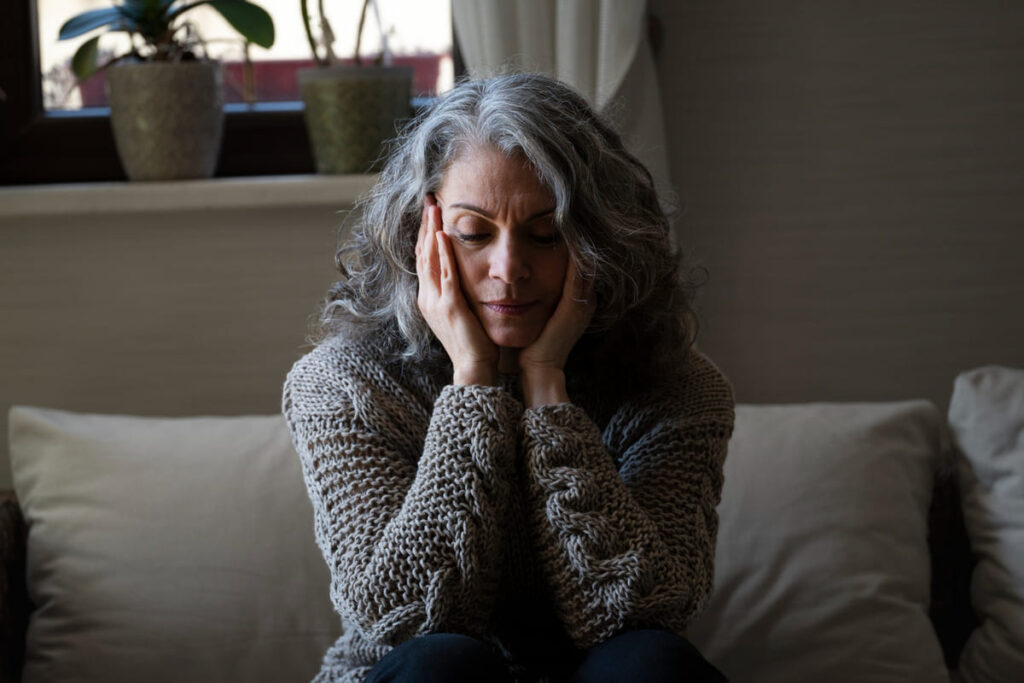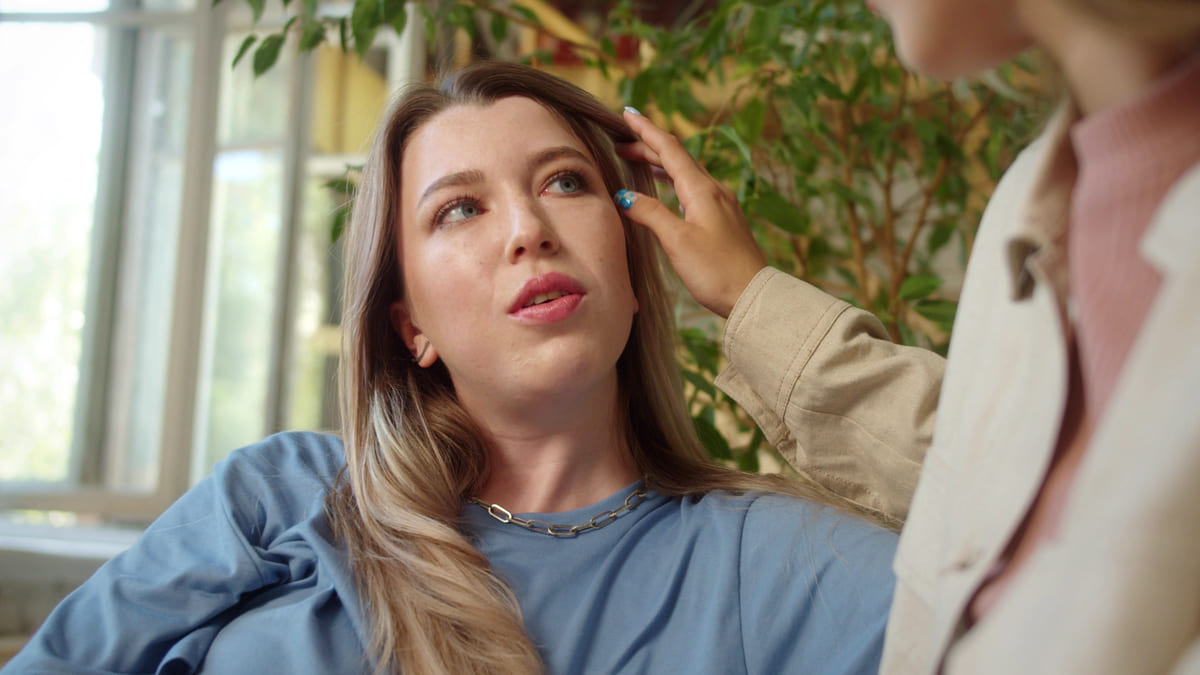Why Mental Health Struggles After 40 Are Still Taboo to Talk About and What We Can Do About It
Talking about mental health struggles after 40 can feel surprisingly tough, even though many people go through it. You might notice that the topic is still wrapped in silence or awkwardness, making it hard to open up even when you want to.
It’s often taboo because mental health challenges at this age clash with expectations about strength, stability, and what “being grown-up” should look like. This unspoken pressure keeps a lot of folks from sharing what they’re really going through.
Mental health stigma often worsens with age due to generational attitudes

When you’re over 40, the way people around you view mental health might still be stuck in old-school thinking. Older generations, like Boomers and the Silent Generation, often grew up with the idea that mental health struggles were a sign of weakness.
This means if you’re dealing with mental health issues later in life, you might find it harder to open up. People from these generations were taught to keep feelings to themselves and face problems with “toughness.” That attitude makes it tricky to talk about what you’re going through without feeling judged.
You might also notice fewer conversations about mental health in your social circle compared to younger groups. While attitudes have improved over time, stigma among older adults remains a real barrier. It can stop you or others from seeking help or even admitting there’s a problem.
So if you’re facing mental health challenges after 40, know that some of the silence around it comes from long-held generational beliefs, not from you personally. It’s a tough culture to break through, but being aware of it can help you find your way.
Many over 40 feel pressure to appear strong and self-reliant

When you hit 40, there’s often an unspoken expectation to keep it all together. You’re seen as someone who should handle life’s challenges without showing weakness. Society tends to link being “strong” with staying silent about struggles.
You might feel like asking for help means you’re failing somehow. This pressure makes it hard to open up about mental health issues. Instead, you might try to tough things out on your own, even when it’s taking a toll.
This kind of mindset can lead to bottling up emotions. Over time, that can affect your mental wellbeing without others even noticing. It’s common to see men, in particular, avoid sharing their feelings to stick with this image of strength.
Recognizing this pressure is the first step in changing it. You don’t have to carry the burden alone, even if it feels like that’s what’s expected.
Workplaces rarely address mental health for older employees

You might notice that mental health conversations at work often focus on younger staff, while those over 40 get overlooked. Many older employees hesitate to speak up because they fear being judged or seen as less capable.
If you’re over 40, you’re likely dealing with stigma that younger workers don’t face as much. Studies show that more than half of workers 55 and older avoid talking about their mental health at work due to fear of backlash.
Your workplace might not have specific support systems in place for mental health challenges faced by older employees. Leadership often misses the chance to create a safe space for those who’ve been in the workforce longer.
When mental health support doesn’t account for your experience or age, you may find it harder to get help. This lack of acknowledgment can make you feel isolated or hesitant to seek assistance.
Fear of being judged as weak or unstable stops open talks

You might hold back from sharing your mental health struggles because you worry others will see you as weak or unstable. This fear of judgment can feel even stronger after 40, when people expect you to have things figured out.
Many believe admitting to mental health struggles makes them less capable. You may worry about how friends, family, or coworkers will react if they find out.
This fear can keep you silent, even when talking could bring relief or support. It’s common to imagine negative evaluation, like social anxiety, where the fear of being judged intensifies your stress.
You’re not alone if you avoid discussing your feelings to protect yourself from stigma. But holding everything inside might prevent you from getting help or feeling understood.
Lack of visible role models discussing mental health after 40

When you’re over 40, it can feel like mental health conversations are missing role models who look like you. Most public discussions focus on younger people or athletes in their prime, leaving those in middle age with fewer relatable examples.
You might notice that famous figures who share their struggles tend to be younger or from different backgrounds. This makes it harder to see mental health as something relevant to your stage of life.
Seeing people in your age group openly talk about their mental health could make it easier for you to start those conversations. It can help normalize your experiences and reduce the feeling that you’re alone.
Without enough visible role models, mental health stigma stays strong for people after 40. The silence can keep you from seeking support even when you need it most.
Cultural views still link mental health to personal failure

You might notice that in many cultures, mental health struggles are seen as a sign of weakness or personal failure. This idea can make it hard for you to open up, especially after 40, when people expect you to have everything figured out.
It’s common for some cultures to view emotional difficulties as something you should control or hide. If you admit you’re struggling, others might think you lack self-discipline or strength.
Because of this, you might feel shame or worry about what others will think. This stigma can keep you from seeking help or even talking about how you feel with those closest to you.
You could find yourself relying on family or traditional remedies instead of professional support, simply because mental health issues are not widely accepted as real health problems.
So, the pressure to maintain an image of toughness and control keeps many adults over 40 from speaking up. You’re not alone if you’ve felt this way—it’s a cultural thing that’s hard to shake.
Chronic life stressors after 40 get ignored as ‘normal’

When you hit your 40s, stress tends to pile up, but a lot of it gets brushed off as just part of “normal” life. You might juggle work pressures, family responsibilities, and health changes, all at once. Because these challenges are common, they often fly under the radar.
You may start to think that feeling overwhelmed or anxious is just how life is now. This makes it harder to speak up or seek help. When everyone around you seems to be managing, it’s easy to feel like you’re the only one struggling.
Chronic stress, which sticks around for a long time, can quietly affect your mental and physical health. But since it’s not always visible, you and others might overlook how serious it really is. Ignoring this stress blocks the chance to address it early before it causes bigger problems.
The truth is, stress after 40 isn’t something you just have to accept. Recognizing it as more than just “normal” is a good first step toward taking care of your mental health.

When you struggle with mental health after 40, it can feel like the people around you don’t want to talk about it. Friends and family might avoid the subject because they’re uncomfortable or don’t know how to help.
This avoidance often leaves you with less social support just when you need it most. Without open conversations, it’s harder for those close to you to offer real understanding or meaningful help.
You might notice people changing the topic or giving quick, surface-level advice instead of listening. That can make you feel isolated, even if you’re surrounded by people.
Social support plays a big role in mental health, but it depends on honest and open communication. When the topic stays taboo, the support you receive tends to be weak or inconsistent.
You’re not alone in feeling this way, but breaking the silence can be tough. Sometimes you have to start the conversation yourself to get people comfortable enough to listen.
Healthcare providers sometimes downplay emotional struggles in this age group
You might notice that when you talk to your healthcare provider, your emotional struggles don’t always get the attention they deserve. Sometimes, symptoms like anxiety or depression are brushed off or seen as just part of getting older.
Doctors can focus on physical health problems, overlooking mental health issues. This means things like feeling down or stressed could be dismissed instead of addressed properly.
You may also find that physical symptoms are blamed on mental health without further checks. For example, your doctor might skip routine exams because they assume your pain or fatigue is just emotional.
This can make it harder for you to get the right help. When emotional struggles are downplayed, it feeds into the stigma and keeps you from talking openly about how you feel.
It’s important to speak up and advocate for yourself. Let your provider know that your mental health is just as important as your physical health.
Men over 40 especially face a taboo on showing vulnerability
When you hit 40, there’s often this silent expectation that you should have everything figured out. Society tends to push the idea that real men stay strong and don’t show weakness.
This makes it tough for you to open up about mental health struggles. You might feel like talking about your feelings or asking for help could be seen as failing or not living up to those “manly” standards.
On top of that, many men your age grew up hearing messages that emotions are private or even a sign of weakness. That background can make it harder for you to break the pattern and be vulnerable now.
It’s important to know you’re not alone in feeling this way, even if it seems like everyone else has it all together. Changing how you think about strength might be the first step to feeling more comfortable sharing what you’re going through.







